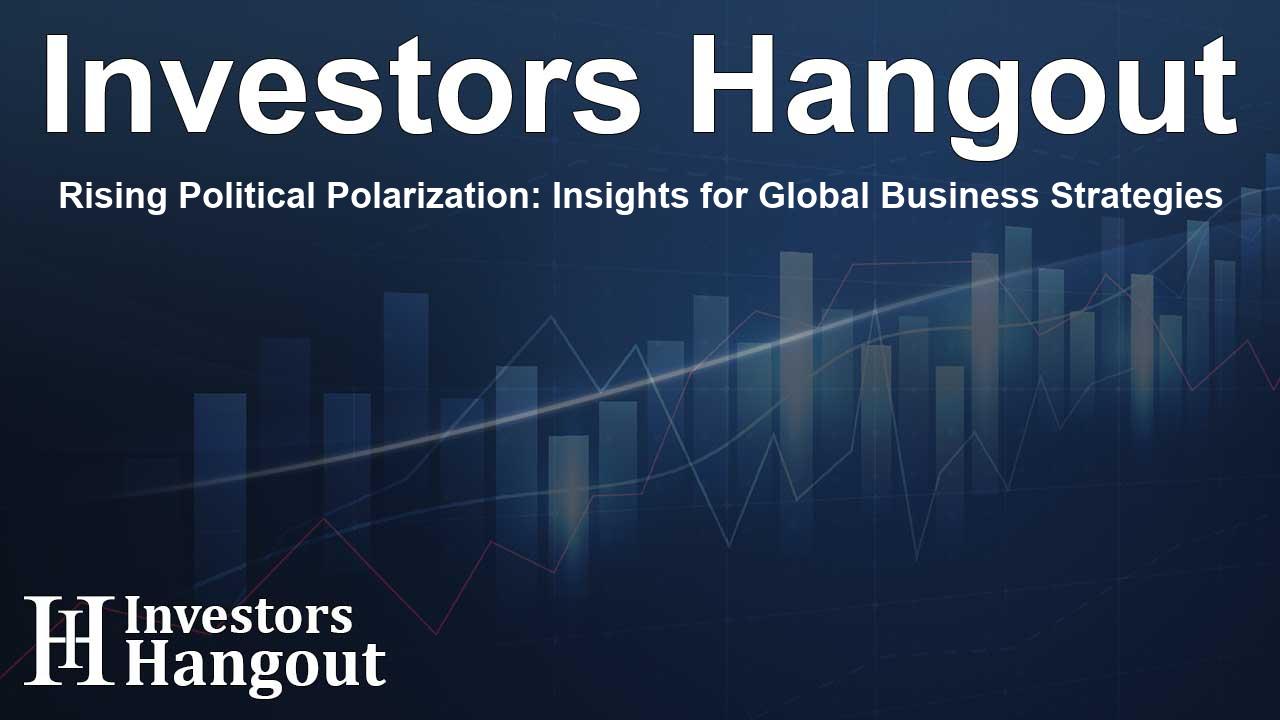Rising Political Polarization: Insights for Global Business Strategies

The Growing Challenge of Political Polarization for Businesses
Political polarization is becoming increasingly pronounced around the world, leading to new challenges for companies across various sectors. According to the latest Political Risk Index by Willis (NASDAQ: WTW), a prominent global advisory and brokerage firm, the implications of this trend stretch further than just political discourse; they directly impact the stability and operations of businesses.
Understanding Political Polarization
Recent findings highlight that affective polarization, the tendency for individuals to view supporters of opposing political parties with hostility, is at a historic high on a global scale. This prevalence has significant ramifications in countries where political competition is marked by ethnic or religious lines. Notably, democracies like the United States, Germany, India, Brazil, and Bulgaria are experiencing the fastest rates of this form of polarization.
Types of Polarization
Polarization can manifest in various forms, including ideological and elite polarization. Ideological polarization reflects the degree to which political opinions become more extreme, while elite polarization represents the deepening divides among political leaders and influencers. The United States stands out globally as the only country where all three forms of polarization have escalated significantly over the past fifteen years.
Impact of Economic Factors
Willis discovered through extensive data analysis that surges in polarization often correlate with economic downturns and scandals that undermine trust in traditional political leadership. These economic crises tend to give rise to populist movements, which exacerbate divisions among the populace and can increase the likelihood of political violence.
Key Findings from the Political Risk Index
Several crucial insights unfolded from the index's findings, such as:
- The highest levels of affective polarization are observed in nations where political rivalry exacerbates ethnic or religious tensions.
- Long-standing political leaders and controversial populist figures can serve as significant polarising agents within their countries.
- Geopolitical discord and foreign policy disagreements can broaden societal polarization.
- The phenomena of rising populism and polarization are evidently present in both the United States and Europe, as well as among emerging markets.
What Lies Ahead?
Amidst these challenges, there are glimmers of hope. The report identifies that processes such as truth and reconciliation can reduce political polarization quickly. Cross-party coalitions and transparent investigations into corruption may also present avenues for diminishing existing divides. Successful case studies suggest that applying similar strategies in the current climate may mitigate polarization challenges.
The Business Perspective
According to Sam Wilkin, director of political risk analytics at Willis, businesses are concurrently navigating the personal aspects of polarization, such as interpersonal perceptions affected by political identity. As societies become more polarized, companies may encounter heightened challenges in maintaining operations and fostering collaborative environments.
About WTW
WTW (NASDAQ: WTW) excels in delivering data-driven, insightful solutions across people, risk, and capital management. With a dedicated team servicing 140 countries, they assist organizations in refining their strategies and enhancing performance for sustainable success.
Frequently Asked Questions
What is political polarization?
Political polarization refers to the growing division and hostility between differing political ideologies, often leading to heightened conflicts and societal divides.
How does polarization affect businesses?
Businesses can face operational challenges as societal polarization increases, affecting workplace dynamics, public perception, and overall stability.
What measures can be taken to address polarization?
Truth and reconciliation processes, transparent investigations, and cross-party coalitions can help in reducing polarization and restoring trust.
Why is the U.S. notable in terms of polarization?
The U.S. exhibits a unique combination of affective, ideological, and elite polarization that has intensified rapidly, affecting social and political dynamics significantly.
What role does economic crisis play in political polarization?
Economic crises often trigger political polarization as they can discredit existing leadership and fuel the rise of populist movements, leading to greater societal divisions.
About The Author
Contact Riley Hayes privately here. Or send an email with ATTN: Riley Hayes as the subject to contact@investorshangout.com.
About Investors Hangout
Investors Hangout is a leading online stock forum for financial discussion and learning, offering a wide range of free tools and resources. It draws in traders of all levels, who exchange market knowledge, investigate trading tactics, and keep an eye on industry developments in real time. Featuring financial articles, stock message boards, quotes, charts, company profiles, and live news updates. Through cooperative learning and a wealth of informational resources, it helps users from novices creating their first portfolios to experts honing their techniques. Join Investors Hangout today: https://investorshangout.com/
The content of this article is based on factual, publicly available information and does not represent legal, financial, or investment advice. Investors Hangout does not offer financial advice, and the author is not a licensed financial advisor. Consult a qualified advisor before making any financial or investment decisions based on this article. This article should not be considered advice to purchase, sell, or hold any securities or other investments. If any of the material provided here is inaccurate, please contact us for corrections.
